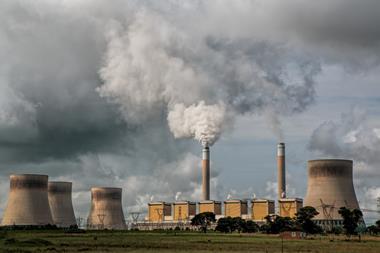The major organisations setting standards and frameworks for corporate reporting will this week launch a consultation about how to better align sustainability reporting frameworks.
The consultation is one of the first steps of a two-year project announced by Corporate Reporting Dialogue participants in November.
The consultation will be open for six weeks and asks respondents for their views on how to support effective disclosures, addressing the Task Force for Climate-related Disclosures (TCFD) recommendations and identifying how non-financial metrics relate to financial outcomes and how this can be integrated in mainstream company reports.
In a statement, the project participants said information gathered from the consultation would inform an initial report due for publication in September, which would show the links between the TCFD recommendations and different corporate reporting frameworks.
The aim of the project framing the consultation is to “make it easier for companies to prepare effective and coherent disclosures that meet the information needs of capital markets and other stakeholders in society”.
The participating organisations are: CDP, the Climate Disclosure Standards Board, the Global Reporting Initiative, the International Integrated Reporting Council, and the Sustainability Accounting Standards Board.
PPF joins TPI
The UK’s pension lifeboat fund has become a supporter of the Transition Pathway Initiative (TPI), an asset owner-led research programme that assesses how well companies are prepared for the shift to a low-carbon economy. The £30bn (€35bn) Pension Protection Fund is one of more than 40 investors who have pledged support for the TPI.
It said it was “committed to understanding how our investments might contribute to and be exposed to material climate-related issues”.
Another day, another @tp_initiative supporter! Thank you @PPF #pensionprotectionfund for supporting our work, research and push for #carbondisclosure and #climatechangeaction by the world’s highest #CO2 emitting sectors and companies #lowcarbontransition pic.twitter.com/MhCuVbhRqW
— Transition Pathway Initiative (TPI) (@tp_initiative) March 13, 2019
BNP Paribas tightens coal policy
BNP Paribas Asset Management has unveiled a new coal policy for all its actively managed open-ended funds.
From next year it will exclude companies that derive more than 10% of their revenues from mining thermal coal and/or that are responsible for 1% or more of total global thermal coal production.
It will also exclude all power generators with a carbon intensity above the 2017 global average of 491g per kilowatt per hour. The asset manager will also exclude power generators who do not keep pace with a reduction of the power sector’s carbon intensity to 327g of carbon dioxide per kilowatt hour by 2025.
The asset manager said it would consider exceptions to the exclusion rules in certain circumstances, with decisions to be made by the investment committee on a semi-annual basis.











